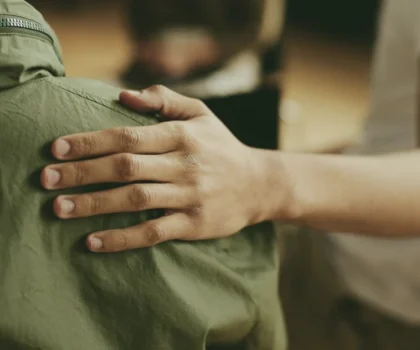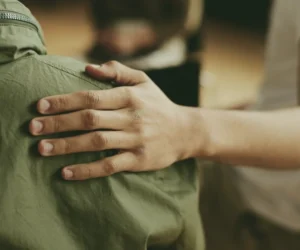
If formal intervention is necessary, local substance abuse professionals should be contacted. In addition, it might be helpful to learn more about screening tools, prevention efforts, and treatments. There’s no easy way to determine whether your teenage son or daughter is using drugs because many of the signs and symptoms resemble typical teenage behavior. Additionally, they may also be signs of underlying mental health issues, such as depression or anxiety. Recognizing the signs of drug use in teenagers involves paying close attention to their performance and behavior in academic settings.
- Being aware of these impacts can foster proactive discussions regarding drug prevention and healthy coping mechanisms for teenagers.
- Coworkers or classmates may report multiple thefts or missing personal items.
- In addition, red, flushed color of the face and cheeks can also be a sign of drinking.
- Unfortunately, this has the effect of passively enabling the unhealthy behaviors.
- These fluctuations can occur without any apparent reason and may be more intense than typical teenage emotions.
Medical Professionals
By the mid-1900s, nitrous oxide had become a standard tool in dental practice; however, its euphoric properties led to some cases of recreational abuse by dentists. Some instances still surface today, but professional abuse is far less common due to regulations, oversight, and a growing emphasis on substance use disorder education. Such abuse is usually detected through discrepancies in gas-usage records or unusual individual behavior. Those caught abusing nitrous oxide face disciplinary action, including loss of their license to practice. Recognizing these academic and behavioral changes is crucial for identifying potential drug use issues in teenagers. Implementing open communication and seeking support can help address these challenges effectively.

Teen drug abuse: Help your teen avoid drugs
Youth with substance use disorders also experience higher rates of physical and mental illnesses, diminished overall health and well-being, and potential progression to addiction. Marijuana can impair concentration, worsen mental health, interfere with prescription medications, lead to risky sexual behaviors, or contribute to dangerous driving. In addition, teens often don’t know or understand the dangers of substance abuse. They may see occasional use as being safe and don’t believe they could become addicted to drugs or face consequences. Contact a treatment provider for teenage addiction treatment options today. The best way to prevent an addiction to a drug is not to take the drug at all.
Marijuana
His theories have changed the field, stimulated additional research, and led to new understanding and treatments for opioid use disorders, cocaine use disorders, overeating, smoking, and depression. The drug can also cause nausea and vomiting, which may lead to choking if the user is lying down. One surprising side effect is frostbite; directly inhaling the gas from the canister can cause cold burns. Dependence, cravings, and compulsive use of nitrous oxide may result from regular use of the drug. When used without adequate oxygen, nitrous oxide can cause oxygen deprivation (hypoxia), which can result in dizziness, unconsciousness, cognitive impairment, paranoia, or even death in severe cases. Users typically puncture the canister, release the gas into a balloon or similar object, and inhale the drug.
- If you notice your child showing several of the warning signs below, the best thing you can do is take them to a professional for an assessment.
- If your high school student has a sudden, drastic change of mood, they may be experiencing substance abuse or another mental illness.
- As teenagers experiment with drugs, they may become more secretive, defensive, or rebellious.
- Or teens may order substances online that promise to help in sports competition, or promote weight loss.
- Substance use isn’t who your child is rather, it’s something they’re going through.
The teenage brain is vulnerable to the harmful effects of nicotine, including anxiety and addiction. A study showed that 60% of teens in a community-based substance use treatment program were also diagnosed with a mental health disorder. While drug use can lead to mental health disorders, sometimes it’s the other way around. It can be difficult to tell the difference between the pangs of adolescence and actual drug use, but parents can be proactive in talking to their teen to find out what’s going on. Teen drug abuse can have long-term cognitive and behavioral effects since the teenage brain is still developing.

For example, your teen might be using stimulants because of debilitating fatigue. They may call you a hypocrite because they know you drink alcohol or have tried drugs before. You should be honest and explain that your use hasn’t harmed your life — or that it has, if that’s the case. Research has shown that the best treatment for teens is one that involves therapy with the entire family, as well as cognitive behavioral therapy (CBT) or a combination of therapeutic methods. Try to remind yourself and your teen that most healthcare professionals only want to help, not judge. Substance use disorder is a serious and challenging condition, not a sign of weakness.
Changes in personality may be exhibited as deception and disrespect to authority figures. A teen involved with drugs may suddenly begin to tell lies to cover the acts, including their movements and associations. More often than not, attempts to caution or correct this behavior are vehemently resisted as an unwanted intrusion and a violation of their privacy. Manipulative and secretive traits are another tell-tale behavior of teens on drugs. They may start making and receiving frequent phone calls, mostly in hushed or whispered tones, and act sneaky and suspicious. While shifts in social circles, activities, and interests are expected, keeping up with them is a supportive and nonintrusive way to know what is happening.

While you may view your child as still young, they’re probably already encountering very adult situations. Some of this is natural and healthy as they learn how to operate in the “real world.” But some is definitely not. The results were gathered from a nationally representative sample, and the data were statistically weighted to provide national numbers. The survey also asks respondents to identify as male, female, other, or prefer signs of drug use not to answer. For the 2022 survey, 48% of 12th grade students identified as male, 47% identified as female, 1% identified as other, and 4% selected the “prefer not to answer” option.
Substance Abuse Screening

Diet pills, caffeine pills, and cold and flu products with dextromethorphan are just a few examples of OTC substances teens may use. They may also have access to family member’s prescriptions for drugs like opiate painkillers and stimulants or get them from friends who do. Teenagers who misuse substances can experience drug dependence (substance use disorder). Developmentally, adolescents are at the highest risk for drug dependence and severe addiction.
